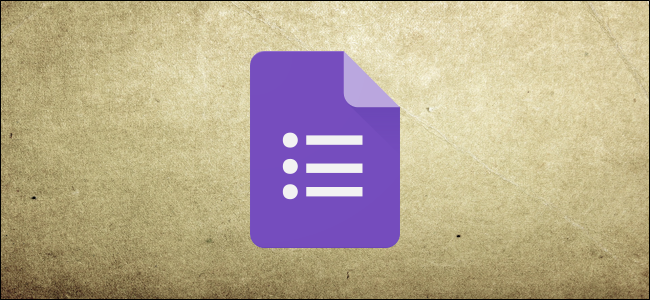
Manually Limiting All Responses in Google Forms
Unless you want to leave a Google Forms form up for responses indefinitely, you may want to disable responses at a later point. While Google Forms doesn’t allow you to schedule this without installing an add-on, you can manually disable responses to your form.
To do this at any point, open your Google Forms form in your desktop web browser. To view your responses, click the “Responses” tab.

In the “Responses” tab, select the “Accepting Responses” slider to disable further responses.

Once it’s disabled, the slider will turn gray with a red border. If you want to add a custom message informing potential respondents that the form is closed for entries, provide a message in the “Message For Respondents” text box provided.

The message you insert will be saved automatically. When new respondents try to load your form, they’ll be greeted with this message and won’t be able to fill out or submit the form.
Automatically Restricting Google Forms Responses
Unfortunately, Google Forms doesn’t have the ability to automatically limit responses based on a preset submission number or closing date. If you require this functionality, you’ll need to install a Google Forms add-on called formLimiter first, although alternatives are available.
To add a new Google Forms add-on to your account, open your Google Forms form in your desktop browser and click the three-dot menu icon in the top-right corner.
From the drop-down menu, click the “Add-Ons” option.

In the “Google Workspace Marketplace” menu, you’ll see a list of available apps to install. Use the search bar at the top to search for “formLimiter” to install, or scroll through the list to find it manually.
Once you’ve located formLimiter, click the name, the card icon, or the info icon to view more information.
In the “formLimiter” information menu, click the install button to install the add-on.

Google Forms will need permission to install the add-on. Click the “Continue” option to accept the terms and conditions and continue the installation.

In another window, a list of permissions that formLimiter will have access to will be visible. Confirm that you’re happy with these, then click “Allow” to provide it with access to your Google account.

With permissions granted, formLimiter can be accessed by clicking the add-ons icon on your Google Forms page. From the drop-down menu, click the “formLimiter” option.

In the “formLimiter” pop-up menu, select the “Set Limit” option.

A pop-up menu will appear in the bottom-right corner. From the “Limit Type” drop-down menu, you’ll be able to set response restrictions based on the number of responses or by the date and time.
Limiting Responses by Submission Number
To limit responses by submission number, select “Number Of Form Responses” from the drop-down menu. In the box below the drop-down menu, provide a maximum number of submissions (for instance, “10” to limit responses to ten submissions).
If you want to change the message that potential respondents will see when the form is closed, make your changes in the box provided. If you want to receive an email when submissions are closed, click the “Email form owner when submissions are closed” checkbox.
Click “Save And Enable” to save your settings.

After responses to your form pass the target number, the form will close and no further submissions will be possible.
Limiting Responses by Date and Time
If you want to stop responses after a closing date and time, select “Date And Time” from the “Limit Type” drop-down menu.
Using the boxes provided, set a closing date and time suitable for your form. Clicking the boxes will allow you to use the built-in calendar pop-ups to select this.

Once a time and date are selected, make changes to the closed submission message using the box provided (or leave it if you’re happy with the preset message). If you want to receive an email when the closing date and time passes, click the “Email form owner when submissions are closed” checkbox.
Click “Save And Enable” to add the closing date to your form.

Once that’s saved, submissions won’t be possible past the closing time and date you selected.
Disabling Response Limits Using formLimiter
If you want to disable these limits before the target submission number or closing date is reached, click Add-ons > formLimiter, then click “Disable” in the pop-up menu.

This will ensure that potential respondents can continue to use your form until you disable responses again.

No comments:
Post a Comment